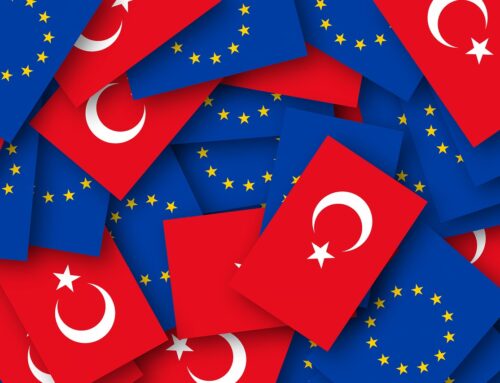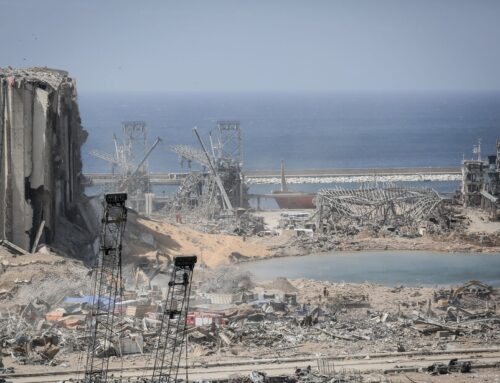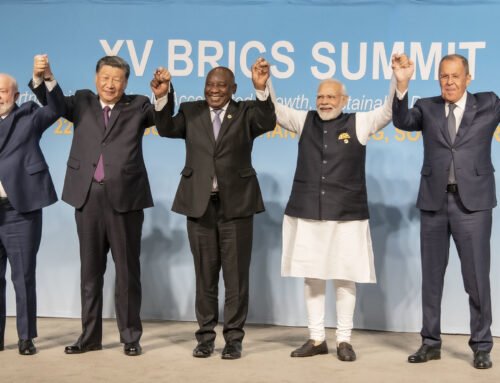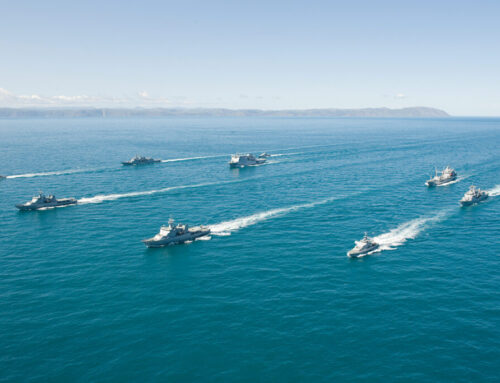P_Policy_Paper_20172
Autor foto: Domena publiczna

Can the EU uphold Iran Nuclear deal?
August 6, 2018
Author: Jakub Gajda
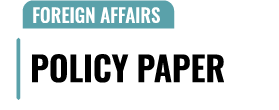



P_Policy_Paper_20172
Autor foto: Domena publiczna
Can the EU uphold Iran Nuclear deal?
Author: Jakub Gajda
Published: August 6, 2018
Pulaski Policy Paper No 10, 2018. 6 August 2018
In May 2018, US president Donald Trump withdrew from the Joint Comprehensive Plan of Action (JPCOA) agreement, signed under the presidency of Barack Obama by the US, EU and 3 other world powers. The United States also announced two new rounds of sanctions on Iran, to take place in September and November of 2018. Meanwhile, the economies of the EU member states bear the financial consequences of these decisions. Even though the European signatories have not abandoned their 2015 commitments and EU is still trying to preserve the deal, Washington actively forces European governments and businesses to sever economic ties with Tehran, support the sanctions and abandon investments in Iran. EU member states – including Poland – which relaunched business activity on the Iranian market three years ago, face mounting pressure. The outstanding question is whether the Iran problem can drive a wedge between the USA and the EU, and whether Europe will forgo economic expansion in Iran to preserve Western unity.
Effectiveness of the sanctions – will Iran cave in?
The common opinion in Iran, shared by both the supporters and the opponents of the Islamic Republic, is that Iranian nation can endure any hardship imposed by a foreign power. This statement is also true in the current situation, when hopes for a robust growth in most promising of world’s under-developed economies were tarnished by Trump’s move. Despite Tehran’s efforts to rally the nation, a degree of dismay prevails. The government has its back against the wall, with several major international contracts pending. Since JPCOA went into effect, European corporations signed deals for passenger aircraft delivery (due to sanctions, Iran currently has one of the most obsolete airliner fleets in the world), oil production, refinement and trade as well as investments in the Iranian gas sector. Crude oil and gas are the strategic branches of Tehran’s economy, so Trump’s decision indeed hinders Tehran’s regional advancements in the Middle East and generates internal turmoil. It could even result in the breakdown of the Islamic Republic. Iran’s high expectations for a better future of the people and businesses are now used as a political instrument in the psychological war with Tehran. An internal coup and the end of the anti-American Islamic Republic – already under tremendous pressure – would be the best outcome for Washington. Another tempting alternative would be to force Iran to renegotiate the deal, which Trump called “the worst ever.” The US President regularly uses his Twitter account to threaten Iran with serious consequences, only to be brushed off by Tehran’s hardline officials – President Rouhani, Minister of Foreign Affairs Zarif and the Ghods Forces Commander general Solejmani. On the other hand, following his meetings with Kim Dzong Un and Vladimir Putin, Trump proposed striking a new, “real deal” with Tehran. This proposal was turned down.
Nonetheless, the 2015 Iran Deal has already made history. From Europe’s point of view, the EU and its member states were the main beneficiaries of the agreement, second only to Iran itself. Poland was among the most involved countries, sending in 2016 the largest delegation of 100+ businessmen, headed by Janusz Piechociński, the Minister of Economy at the time. A year later, state-owned Polish Investment and Trade Agency initiated the Go!Iran programme and opened a foreign trade office in Tehran. Leading state companies, such as Orlen, Lotos and PGNIG, also significantly increased cooperation with Iran. Nonetheless Polish initiatives paled in comparison with trade and investment efforts undertaken by other European countries, such as Germany or France. A decision to comply with US sanctions would consequently generate substantial financial losses in the EU. This is the main reason behind the attempts to preserve the deal by Brussels, initiated formally in May 2018. However, some European states, and even individual companies investing in Iran, risked tarnishing their business relationships with the United States and Israel. The USA announced secondary sanctions on European companies which will not forego their Tehran ties.
Uncertainty in Iran, uncertainty among investors
The situation in Tehran is more volatile than the one painted by state-owned media. An atmosphere of uncertainty persists, and an increasing number of Iranians considers moving abroad, fearing that the economic crisis will deepen. Weeks before Trump’s announcement, the exchange rate of Iranian rial (IRR) against euro and dollar was falling by a dozen or so percent per day. This prompted the government to shut down private currency exchanges (Farsi: sarrafi) and other financial institutions, which have not reopened since. This takes a toll on the Iranian economy, since the sarrafi system also allowed Iranians to bypass the sanction regime and transfer money in and out of the country. This situation has not changed for more than two months, and the final consequences are yet to be determined. Meanwhile, more and more European companies pull out of Iranian market, putting even more pressure on currency devaluation. Since September 2018, the black-market value of US dollar and the euro rose by almost 300 percent against the rial.
Political hesitation = economical losses
Investors from the EU are also incurring losses. It is unsettling that no diplomatic initiatives have been launched by the EU to bring Iran and the USA back to the negotiating table. While keeping the nuclear deal alive is important for economic reasons, no lasting agreement between Iran and the USA will be possible as long as the two hold opposing views on the world security architecture, Middle East affairs and international cooperation. While European states know Trump’s presidency may see the end of JPCOA, their diplomatic services have not put much effort into facilitating negotiations between Washington and Tehran.
In 2017, the three European signatories of JPCOA announced support for the changes to the agreement proposed by Washington, which affected control over Iranian ballistic missile program and limiting Tehran’s influence in the region. Moreover, European governments, banks and financial institutions were slow, not to say tardy, to lift restrictions on business with Iran. Both factors make Iran less likely to stand down on armament (ballistic program) or regional policy, which could weaken Trump’s hand. Iran does not see the potential losses of European companies translating into a more active policy in Brussels, and thus foresees that the EU to quietly align with US policy over time. This scenario seems even more plausible after the latest meeting between president Trump and the head of European Commission, Jean-Claude Juncker, which ended with a declaration about the end of the trade war.
What is the EU losing?
If Europe cares about business relationships with the large and unsaturated Iranian market, diversifying oil and gas supplies (energy independence from Russia) and at least partially controlling the refugee crisis (stable Iran would be an enabling factor), a platform for dialogue with Tehran is necessary. The argument for supporting the Middle East peace and stabilization process was even raised by the Minister of Foreign Affairs of Iran, Mohammad Dzawad Zarif. Naturally Zarif is trying to reinforce the Pax Iranica in the region, which is directly contrary to the interest of other middle-eastern states, primarily Israel and Saudi Arabia. Nonetheless, the core argument is correct – the European Union is punching below its weight in the Middle East, setting the stage for Washington’s global policy objectives. Therefore, the miscalculation on EU’s side took place back in 2015. Instead of rebuilding industrial relationship with Iran, the uncertain international environment dictated that the EU should focus on facilitating a long-term Washington-Tehran dialogue. The fact that such a process was not in place, enabled Trump to pull out of JCPOA, which end-result so negative for European businesses.
Today, most of the discussion about preserving JCPOA is pure rhetoric. The package of initiatives to sustain JCPOA, presented in July 2018 by High Representative of the European Union for Foreign Affairs and Security Policy Federica Mogherini, was received in Tehran with skepticism. It lists no binding provisions for two most important issues – enabling sale of Iranian crude oil and lifting financial transaction restrictions between the UE and Iran. Moreover, it provides no answer to the secondary sanctions imposed by Washington in September. More than anything, the package is perceived as a naïve attempt at drawing out the negotiations till November 2018. Both the Iranian MFA and the President demanded more concrete reassurances from the EU.
Biggest Losers
Therefore, it is likely that the EU will align itself with Washington’s policy towards Iran. By doing so, EU will lose on future opportunities but not on existing trade agreements, since these are few in between. Even tough in 2017 EU export to Iran rose by a third, from USD 10,8 billion to USD 12,8 billion, Iran is still at a distant 33rd place among block’s trading partners. Nonetheless, the growth trends were very impressive, and several large European companies will incur losses due to frozen or cancelled contracts. The largest deal in the fuel sector was signed by France’s Total, which was contracted for natural gas exploration projects – one of the most promising investments for Iranian economy. Whether Total will be able to make good on this agreement depends on several factors, such as UE’s legal protection umbrella or the severity of Washington’s secondary sanction regime on companies trading with Iran. Another discussed option for the French is to sign the agreement off onto the minority partner – China’s CNPC.
“Looking East” for help
Sensing the upcoming storm, Iranian government began reviving the economic cooperation with the East, which was first initiated during the presidency of M. Ahmadinejad. The USA initially signed the JCPOA, but few American companies signed agreements in Iran and the economic ties remained weak. While the ban imposed on certain contracts, such as Boeing’s deal for jetliners, which will hurt both sides, Iran will suffer more by losing the European market, particularly in the oil and gas business. Without the Western drilling technology and profits from fuel sale, O&G sector in Iran will go back to the pre-JCPOA state, which will affect the Iranian economy and the society. The only chance is for Iran to draw closer to China, and to sustain oil sales to India (however the USA is also putting pressure on New Delhi to limit Iranian imports). This strategy worked during M. Ahmadinejad presidency, when Iran was faced with Western sanctions. The story may repeat itself, as the JCPOA (now P4+1, not P5+1) continues to disintegrate, and European states remain hesitant on how to uphold the deal. For some time, Iranian media is overflowing with news on the necessity to develop relationships with China, India and Russia.
Conclusions and recommendations
1. A cooperation between EU and Iran is against Washington’s interest.
2. Faced with sanctions, Iran most likely won’t renegotiate the nuclear agreement with Washington, and Trump’s “Real Deal” won’t materialise. In Tehran’s opinion, any talks with the current US president are unlikely, and a renegotiation will have to wait until a new incumbent sits in the White House.
3. After a reset under president Obama, the USA is now once again perceived as a hostile country, which cannot be trusted.
4. Iran’s situation on the global stage is more complicated than it has been for years. This is because of the initial high hopes of Iranians related to the JCPOA and a sharp currency devaluation after the USA decided to pull out of the deal.
5. The European Union was too slow to lift trading barriers with Iran. Thus, it failed to exercise enough pressure on Tehran, which could help to set new JCPOA terms and keep the large Iranian market open for European companies, even after Trump’s radical moves.
6. The European Union, along with Iran, will likely lose the most on JCPOA failure (and China will benefit).
7. It seems likely that the European Union and the three European signatories won’t stand up to Washington, and formally abide to Washington’s sanctions.
8. Currently and in the future, EU member states interested in economic cooperation with Ian should focus on facilitating a dialogue between Tehran and Washington. This will improve the business environment and help to deescalate tensions in the Middle East.
9. The European Union and European states should be more active in enhancing dialogue and stabilization processes in the Middle East. Geographical proximity and the immigrant crisis in Europe are the most important reasons for that.
Author: Jakub Gajda, Research Fellow at Foreign Policy Programme of the Casimir Pulaski Foundation
Download the article in PDF


